7 Symptoms of Dehydration in Women
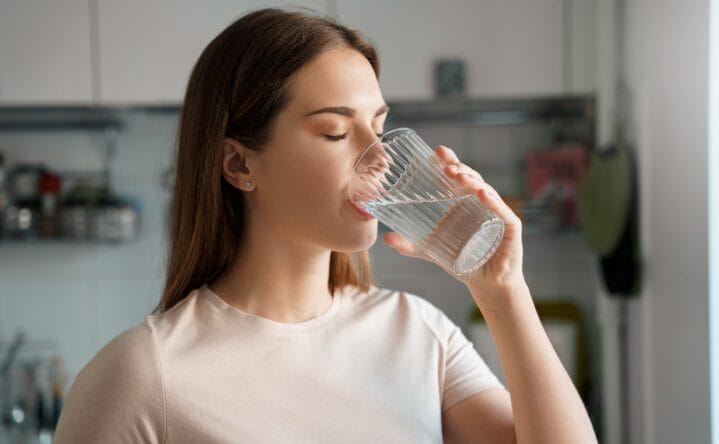
Symptoms of dehydration can look different in men and women, so it’s important you know the signs.
You probably already know that water is really important (like, we need it to survive) and hopefully it’s something that you drink a decent amount of throughout your day. But did you know that water makes up an estimated 60 percent of your body, per the United States Geological Survey? That means we need it in super large amounts to ensure that all of our necessary bodily functions are able to be carried out.
While many of the symptoms of dehydration are the same between all genders, here are some of the signs that are most notable in women, according to experts.
1. Difficulty Concentrating

While feeling a bit foggy and tired can be a sign of many conditions, dehydration is one of them. In fact, research including one study published in the journal Nutrition, has shown that even mild dehydration can cause women to become moodier and have difficulty concentrating, notes Natasha Trentacosta, M.D., sports medicine specialist and orthopedic surgeon at Cedars-Sinai Kerlan-Jobe Institute in Los Angeles. “Female participants were noted to have difficulty concentrating on simple tasks, an effect that seems to be greater in women than in men,” she says.
2. Headaches
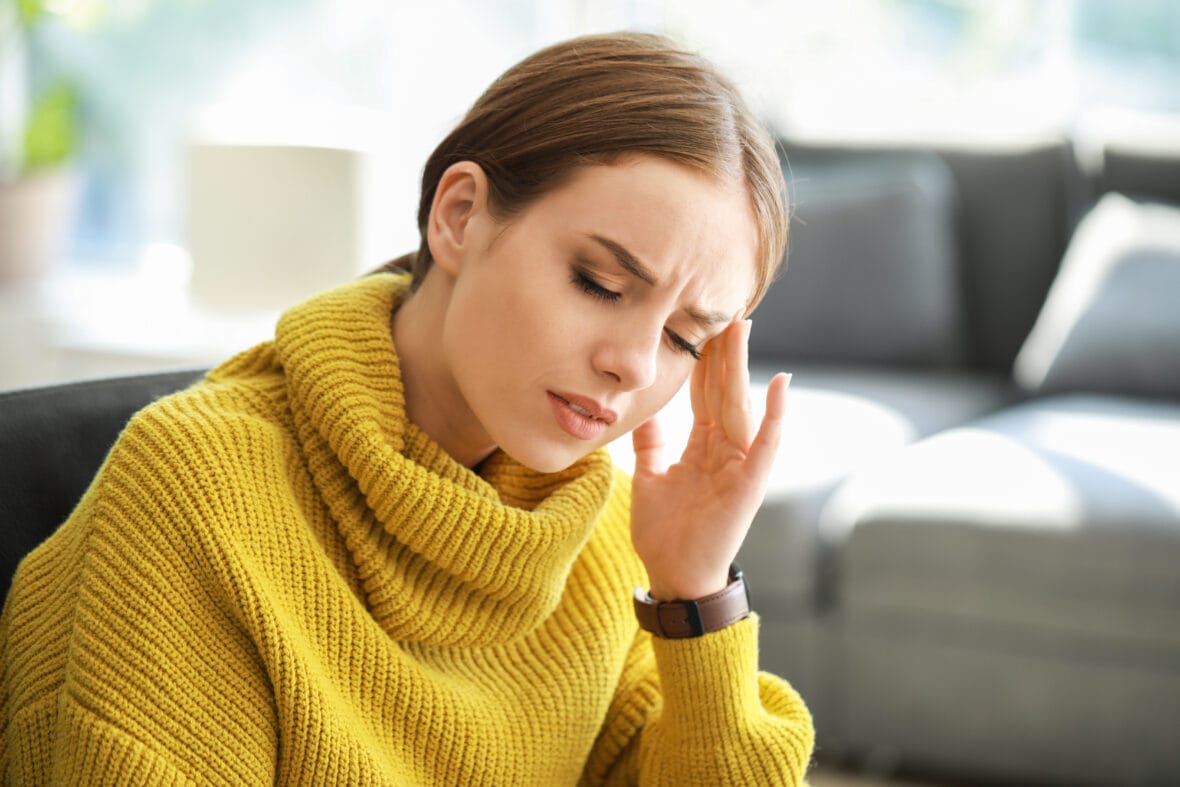
Headaches are often another one of the common symptoms of dehydration that many people face—women especially. “Headaches occur because your brain is contracting from fluid loss, causing pain,” explains Nicole M. Avena, Ph.D., Assistant Professor of Neuroscience at Mount Sinai School of Medicine and Visiting Professor of Health Psychology at Princeton University and author of What to Eat When You Want to Get Pregnant. For this reason, she recommends staying hydrated with a sports drink like Essential Elements Hydration, which can be added to your water. “It is a great way to replenish salty electrolytes like sodium, chloride, and potassium that attract water,” she adds.
Also Read: 8 Ways to Get Rid of a Headache Naturally
3. Dark Yellow Urine
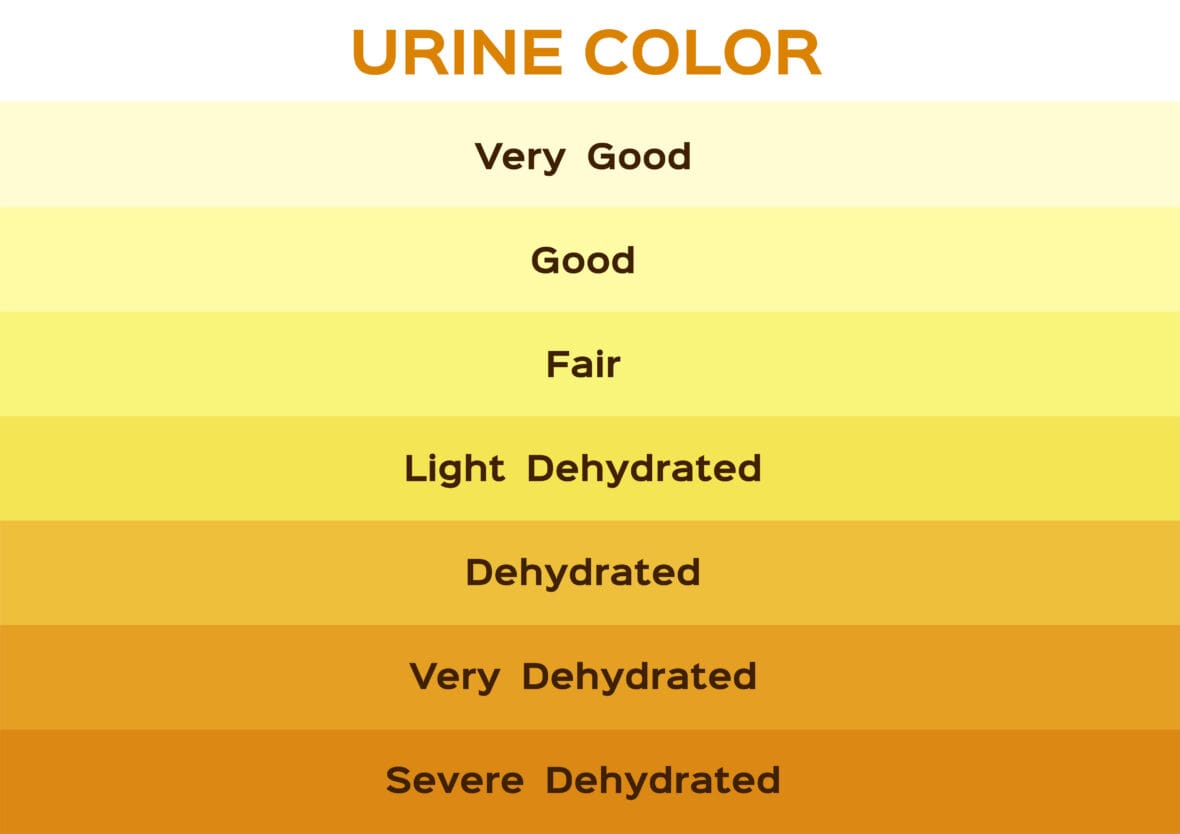
Your pee is supposed to be yellow, but not so saturated that it’s dark. In fact, dark yellow urine is a common sign of dehydration and one that can help you easily monitor your hydration status, notes Dr. Trentacosta. “Dark urine is your body’s attempt at trying to conserve water loss by trying to pull out and conserve any water through your kidneys,” she says. “Having your urine output as clear as possible is a good indication of a well-hydrated body.”
4. Bad Breath
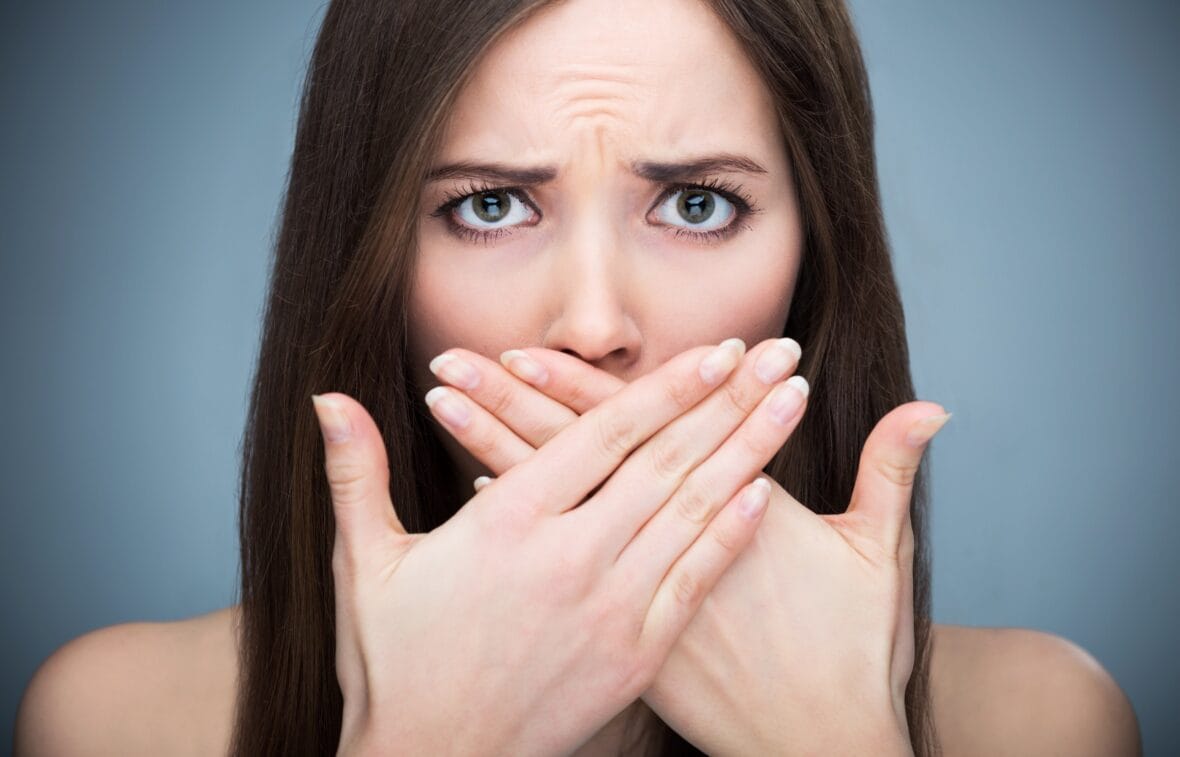
Unless you’re a unicorn, chances are, you’ve experienced bad breath before—but you may not have realized that it was likely caused by dehydration. “Bad breath is a symptom in women caused by the lack of saliva production,” explains Dr. Avena. “When the body is not absorbing water, there is not enough fluids for this production.” She recommends drinking water before eating a mint to start saliva production and fix the long-term problem.
5. Dry Skin
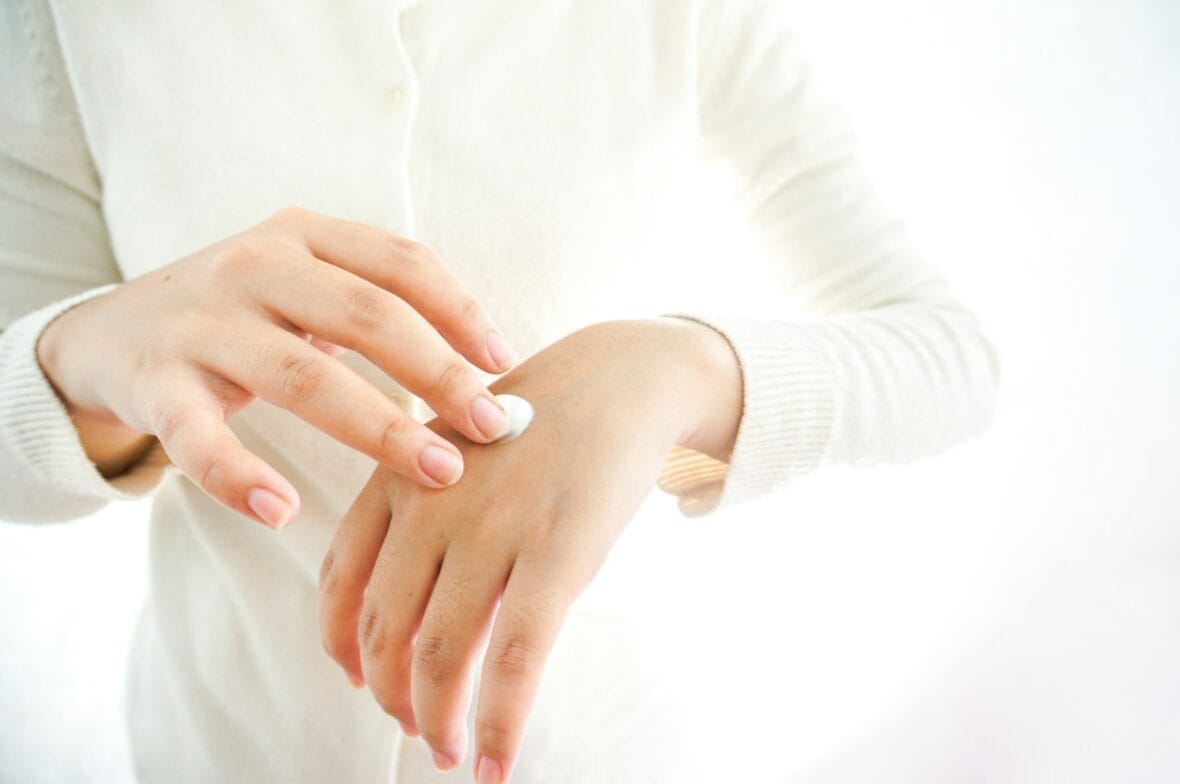
“Dry skin is a symptom caused by our organs not receiving enough water to be composed of 80 percent fluids,” says Dr. Avena. “Our skin is not healthy and will start to peel off because it isn’t in its optimal condition.” In addition to drinking the daily recommended water intake, she suggests using a moisturizer to keep your skin from peeling and keep it healthy. Keep reading, because there are a couple more symptoms of dehydration that you should be familiar with.
Check Out: Body Lotions vs. Body Creams: What’s The Difference?
6. Muscle Cramps

If you’ve ever experienced a muscle cramp out of nowhere, it was very likely caused by you being dehydrated. “Muscle cramps are a sign of low sodium, which helps transport water into the blood, and not drinking enough water,” says Sherry Ross, M.D., OB/GYN and Women’s Health Expert at Providence Saint John’s Health Center in Santa Monica, California. “Hydrating with water and making sure you are getting enough sodium in your diet will help ease muscle cramps.”
7. Constipation

There are a ton of factors that can cause constipation, but one of the most basic—and easy to remedy—is being dehydrated. “Constipation is a sign of poor hydration and water intake,” notes Dr. Ross. “Hydrating with water, eating more fiber, and taking stool softeners can correct this disruptive symptom.”
Taking steps to increase your daily water intake and understanding the symptoms of dehydration can keep you healthy and hydrated all day long.
Also Read: 8 Facts About Your Digestive System You May Not Know
What Happens When You Don’t Drink Enough Water?
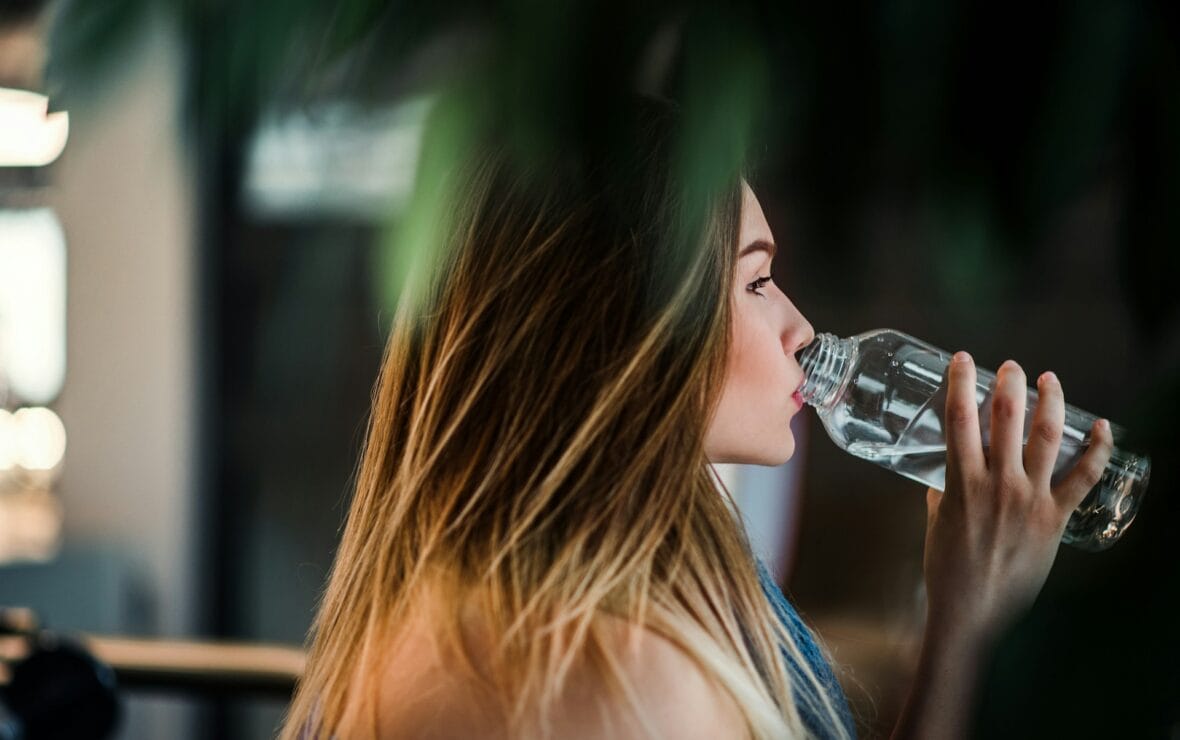
What happens when you don’t drink enough water? Simply put, you become dehydrated—when you lose more fluids than you take in. In its mild form, dehydration usually isn’t anything to worry about, but it can become dangerous to the point where your body cannot function optimally or, in severe cases, at all, notes Roger E. Adams, Ph.D., doctor of nutrition and owner of eatrightfitness. “Excess fluid loss can occur during periods of illness, exposure to long periods of heat or even long bouts of exercise and can impact anyone,” he says.
If you’re a woman, however, you might be more at risk for dehydration than a man. The main reason why hydration is different between men and women is due to differences in sodium and fluid balance among the sexes. “Hormonal differences between men and women play a major role in how our bodies may regulate sodium and fluids, and in women, that can vary greatly during different phases of the menstrual cycle,” Dr. Adams says. “Men do not have fluctuations in hormones during a monthly cycle that affect body water levels; women do and this may affect hydration.”
More specifically, the female sex hormones, estrogen, and progesterone have an impact on body water and plasma sodium levels. They alter during different phases of the menstrual cycle, Dr. Adams explains. “The evidence of sodium loss when progesterone is higher in the second half of the cycle only lasts for a short period, and this loss is quickly compensated by progesterone causing greater aldosterone secretion, the hormone responsible for retaining sodium in the kidneys,” he says. “When there is a drop in the body’s sodium levels, an increase in aldosterone will help release some of this stored sodium into the body and restore levels to normal.”
Also Read: 8 Laundry Hacks That Will Make Your Life So Much Easier
Explore More About:Health and Wellness